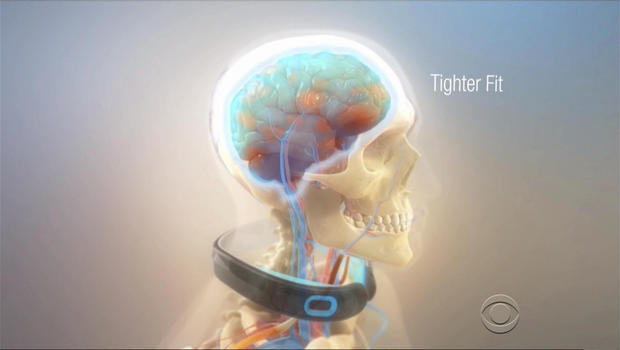Wayne
Well-Known Member
I just watched this 3-minute news segment on CBS News last night. Quite fascinating in and of itself, but I couldn't help but wonder if this new (and simple) device (collar) might help some of the brain circulation and cognitive issues for pwME/CFS.
Here's a LINK to the entire transcript...
.......................................................
Bailes replicated that with a collar for humans that gently presses the vein like a necktie, reducing blood flow out of the brain. That creates a backflow, about a teaspoon of extra blood, making a tighter fit in the skull.

Here's a LINK to the entire transcript...
.......................................................
Bailes replicated that with a collar for humans that gently presses the vein like a necktie, reducing blood flow out of the brain. That creates a backflow, about a teaspoon of extra blood, making a tighter fit in the skull.














